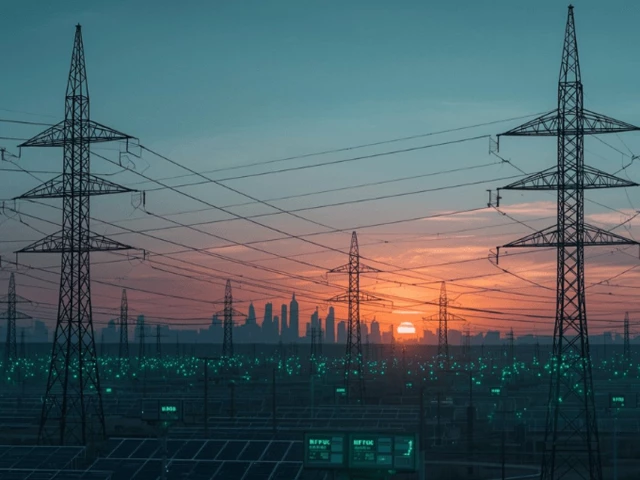Energy experts warn spiralling capacity payments, underutilised plants remain core crisis
The Asian Development Bank has approved a $330 million financing package for Pakistan to expand and modernise its high-voltage transmission infrastructure, a move expected to significantly improve the flow of clean and low-cost energy across the national grid.
While the project marks an important step toward strengthening Pakistan’s power sector, energy experts caution that chronic structural distortions — especially ballooning capacity payments and underutilised generation assets — continue to pose urgent and unresolved challenges.
Announced in Manila on Wednesday, the Second Power Transmission Strengthening Project is one of the Government of Pakistan’s top priorities. It aims to address long-standing congestion and capacity issues in the north–south power corridor by constructing a new 500-kilovolt, approximately 290-kilometre transmission line and upgrading key grid infrastructure serving Islamabad and Faisalabad.
These improvements will enable the evacuation and transfer of up to 3,200 megawatts of hydropower from northern generation clusters, reducing reliance on imported fossil fuels and improving energy security.
“By expanding transmission capacity and enabling the delivery of low-cost hydropower, the project aims to improve access to clean energy in the power mix, reduce system costs, and support Pakistan’s long-term and sustainable economic development,” ADB Country Director for Pakistan Emma Fan said.
The financing package includes a $285 million loan from ADB’s ordinary capital resources and a $45 million concessional loan. The National Grid Company of Pakistan Limited (NGC), formerly NTDC, will execute the project.
In addition to physical infrastructure, the funds will help strengthen NGC’s institutional capacity, financial management, governance, gender initiatives, and public communication as part of broader power-sector reforms and SOE restructuring.
The project aligns with the National Power Policy 2021, Pakistan Vision 2025, and the country’s Nationally Determined Contributions (2021), which prioritise climate resilience, clean energy integration, reduced technical losses, and financial sustainability in the power sector.
While transmission upgrades are widely viewed as essential, sector analysts warn that Pakistan’s power crisis is rooted less in evacuation constraints and more in the rapidly rising cost of capacity payments, which have become the single largest pressure point on electricity tariffs, circular debt, and overall fiscal stability.
Dr Khalid Waleed, an energy specialist at the Sustainable Development Policy Institute (SDPI), welcomed ADB’s investment but emphasised that Pakistan’s real fault line lies in the mismatch between rising fixed costs and the falling utilisation of power plants.
“While we continue to build longer and stronger lines, the real fault line lies elsewhere: spiralling capacity payments and the chronic underutilisation of existing power plants,” he said.
As rooftop and utility-scale solar adoption accelerates across Pakistan — an otherwise positive development — its impact on grid-based thermal plants has become increasingly severe. Many units, particularly older gas- and coal-fired plants, now run at load factors as low as 20–30%. Yet their fixed capacity charges, guaranteed under long-term contracts, must be paid regardless of output.
“Capacity charges continue to rise like an unpaid tab no one remembers ordering,” Dr Waleed noted.
He warned that the challenge is likely to intensify as the European Union’s Carbon Border Adjustment Mechanism (CBAM) becomes fully operational.
Energy-intensive export sectors such as textiles, cement and steel will require cleaner, round-the-clock electricity to remain globally competitive. But conventional plants may become even less utilised as industry shifts to renewables.
Given these structural headwinds, Dr Waleed argued that ADB’s role must evolve beyond traditional grid financing toward mechanisms that support the early retirement or repurposing of costly, underutilised thermal assets.
One such tool is the Energy Transition Mechanism (ETM), a blended-finance model ADB has been piloting across Asia to retire coal plants early using transition credits and concessional capital.
“Pakistan urgently needs ADB’s support to revive the ETM in combination with transition credits. The starting point should be the Jamshoro coal power plant — ironically itself ADB-funded — where an orderly, financed early transition can demonstrate global leadership,” he said.
The call comes as negotiators prepare for COP30 in Belém, Brazil, where discussions on Article 6 carbon markets, transition pathways, and just energy financing are expected to dominate. Pakistan is advocating for tools enabling countries with limited fiscal space to decarbonise without destabilising their economies.
“Supporting early transition of coal — not just building new wires — will be the true test of climate-aligned development cooperation,” Dr Waleed emphasised.
ADB’s new transmission project is expected to reduce technical losses, improve reliability, and support the broader shift toward renewable energy. But experts underline that infrastructure upgrades must be complemented by deeper reforms, ranging from tariff rationalisation and contract renegotiation to competitive procurement and investment in storage solutions.

